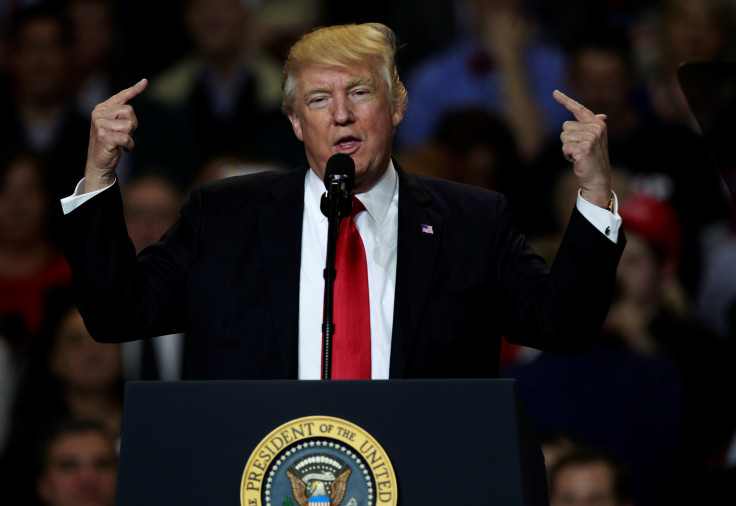Finances Under Trump: Republicans And Democrats Differ On Sense Of Financial Security

How comfortable Americans are with the state of their finances may depend on their political leanings, according to a poll released Wednesday by Gallup.
While the proportion of respondents identifying as Republican who felt “pretty good" about their wealth rose to 70 percent in February from 44 percent who said so in Gallup's October survey, the portion of Democratic-leaning participants saying the same fell to 51 percent from 66 percent over the same period.
Read: How Much Money Should You Have In Savings?
A similar pattern emerged when the 3,700 respondents, based in all 50 states, were asked whether they were “feeling better" financially. The number of GOP respondents who said yes doubled, but the Democrats saw a 28 percentage-point drop between October and February.
When asked whether they could easily make a major, sudden purchase, the portion of Republicans who said they could manage a splurge rose 14 percentage points since Gallup posed the same question in December. Among Dems, the percentage dropped 2 points.
The proportion of Republicans cutting back on spending fell by a third over the same period, while the percentage of Democrats rose by about a fifth.
The release of the results, which relied on answers to a mix of landline and predominantly cell phone questionnaires and carried a margin of error of plus or minus 2 percent, followed the U.S. stock market’s worst trading day since October.
The drop in equities dampened months of apparent economic euphoria. Business confidence reached its highest level since July 2001, while indexes like the Dow Jones Industrial Average (DJI) and S&P 500 (GSPC) broke a series of records, When the Dow broke its landmark 20,000-point barrier, President Donald Trump’s spokeswoman Kellyanne Conway dubbed the rally “the Trump effect.”
The Trump Effect. https://t.co/wexrLY0ulp
— Kellyanne Conway (@KellyannePolls) January 25, 2017
But such optimism may prove hollow, according to a recent report from Bank of America Merrill Lynch. More than a third of fund managers surveyed by the bank saw equities as generally overvalued — the largest percentage since 2000. Meanwhile, the proportion who believed American equities had the biggest disparity between price and real value stood at more than one in eight.
© Copyright IBTimes 2024. All rights reserved.






















